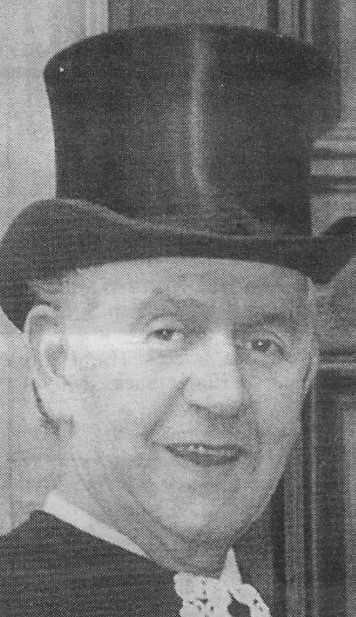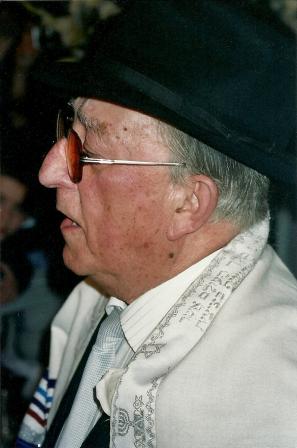The Rev Eliezer Abinun Born in Sarajevo, Bosnia, in 1912. He began his studies at the Jewish seminary in Sarajevo, where his father, though not a hazzan himself, was regarded as an expert in the field of Sephardi chazanut. He continued his training with the congregation in London at the start of his second visit to Britain, in 1936.
Three years later, he was appointed assistant hazzan, and was thus spared the fate of most of his family, who perished in Croatian concentration camps and in Auschwitz during the German occupation of Yugoslavia in the Second World War.
Sarajevo, with its elegant minarets, was the last staging-post for camel transport within the Ottoman empire. Goods carried by camel were transferred to horses or mules in the town before continuing their journeys north. Sarajevo thus became part of the heartland of Sephardi Jewry, soon after the first Spanish refugees arrived late in the 16th century. With its vigorous cultural life and vibrant Jewish press, it eventually flourished as a center of Jewish learning, and a place in which the Jewish community lived in harmony with its neighbors.
The Abinun family held a prominent place within that community, as attested by a memorial book suspended from the ceiling of its former main Sephardi synagogue, now a museum. Both Hebrew and Ladino were spoken at home; and Abinun was thus able to make a vital contribution to the rich cultural heritage of the London community. His knowledge of Hebrew grammar and literature was deep and broad. He remarked that he had origin-ally studied the language not because it was a requirement at the seminary but because he loved the creations of the Jewish genius. To him, they were a source of inspiration and spiritual happiness. Equally at ease with his religion and his secular surroundings, Abinun was a kindly man, generous with help and advice to those who sought him out, and a good friend to many in the congregation. He had a keen sense of humour and dressed jauntily, but always with elegance.
He was an acknowledged authority on both the liturgical music and the secular Romancero tradition of the Sephardim. While a young man, he had a voice of exceptional range. As its brilliance slowly faded, it gained in style and in depth of interpretation. His rendering of the Sephardi melodies for Bereshit and the Ten Commandments, for example, will not be easily surpassed and drew tears of joy from many congregants. His many recordings remain as a memorial to him and as a guide to those who follow.
The Rev Eliezer Abinun retired as senior chazan of the Spanish and Portuguese Jews' Congregation, London, in 1982, having served the community for more than 50 years. He died in Jerusalem, June 28, 1998, at aged 86.
Source: "OBITuaries: Eliezer Abinun" in Jewish Chronicle, August 7, 1998.
The Torah readings by Hazzan Abinun found in the sound archive of the Sha'ar Hashamayim congregation were digitized and are available online.





